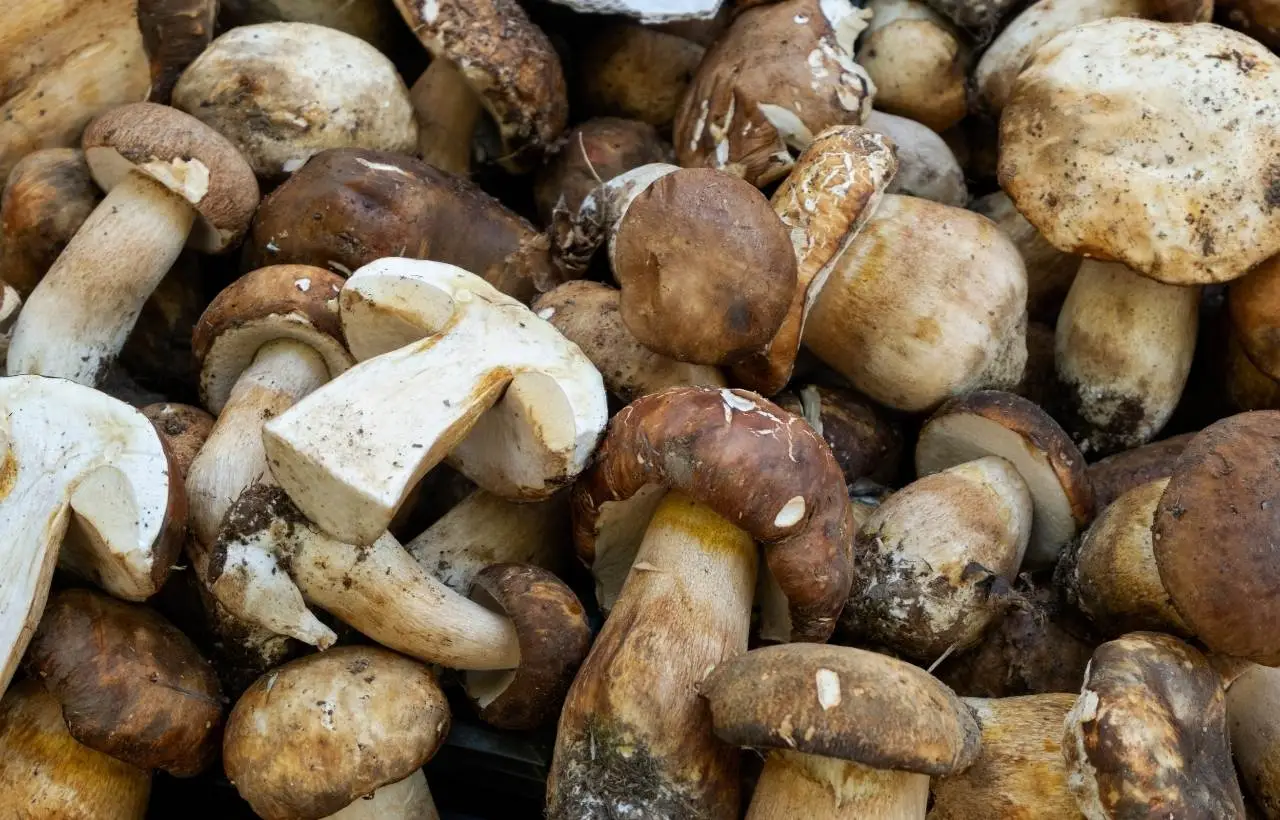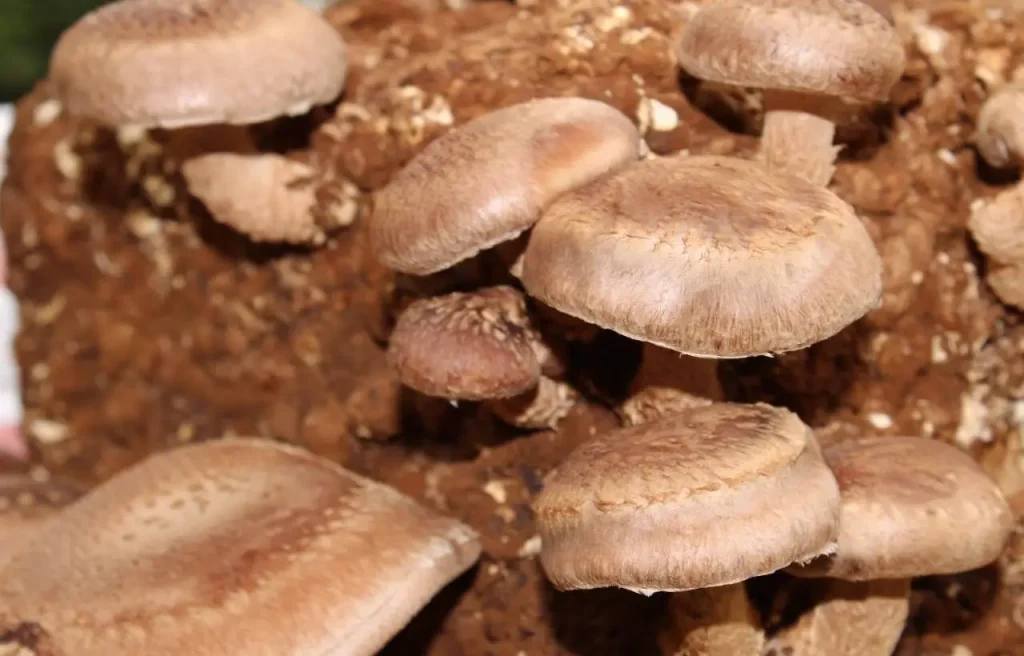Little things can make us happy. Gardening is such a thing. And to make this gardening successful, you will need a bunch of other things. You require fertile soil/ right potting mix, compost, well-drainage, compost, optimum sunlight, and good aeration. Well, all these things need close monitoring and well-preparation. A combination of all these things can make your garden a blooming one.
Do you want to see your garden bloom quickly and healthily? Then compost is a must. Well, what is compost? Compost is an organic matter that is degraded and recycled as a fertilizer and soil amendment. No matter what, compost is the main formula for any organic farming.
However, there is a lot of compost you can use. You can use market-bought compost like vermin compost, tri-compost, blood meal, green manure, homemade compost, farmland compost, and many more.
So, let’s put the mushroom compost in the limelight. You will learn what this compost is, how to use it and when to use it, and other things related to the compost. Are you ready to experience the organic flavor of compost with mushrooms? Here, we begin.
What is mushroom compost?
Compost is always rich in organic nutrients. They can replenish the nutrient deficiency of your garden plants. However, you can apply your compost in the garden bed, horticulture, agriculture, and farmland.
Well, what do you think of mushroom compost? The name of the compost can make you believe it is from the mushroom. But it is not. Stable bedding, wheat straw, poultry litter, and cotton seed hulls are the ingredients of this compost.
While preparing the compost, makers pasteurize it to kill harmful microbes from the mixture. It makes your soil preparation the good one with nutrients added on. But many gardeners use it for mulching and as a buffering ingredient for increasing the pH.
Don’t get confused. This compost is not the compost of mushrooms. It is a combination of different leftover products or manures that mushroom farmers use as a growing media for mushroom production. But when farmers spend it and make it available, gardeners can use it for general purposes of soil preparation because it makes the soil moist and loose in a word, it works as a soil conditioner.
Manufacturing the mushroom compost

An easy-busy-making process. All the ingredients of this compost like poultry manure, wheat straw, and other components along with gypsum get mixed and then put in high heat composting. And after a month or a couple of weeks, your organic fertilizer will be ready to use.
But when the commercial compost is in your hand, it takes a long process because the mushroom farmer uses it as growing media. So, it concludes the process of making the raw material, composting, and heating. After heating, all the harmful bacteria and weeds die.
So, you can make your boletus compost or buy the commercial one.
What is the best version of mushroom compost?
Ok, when the mushroom growing media is spent and used, it becomes available in the garden centres as compost. So, now it is commercially available.
But what is the best version? Packed or the bulk one? The packet version of this compost you can get in the garden centres is heated and then sealed. But the living microorganisms die. The compost is raw, and all living organisms can make your soil fertile in bulk organic compost.
Try to collect a bulk of this organic compost rather than a bagged version. In a way, you will get all the existing microbes remaining in the growing media. It includes fungal spores and activated microbes, so it is a quick element to use on your soil bed. You don’t need things to break down and fertilize your soil.
So, try to bring the best version of the bulk and raw mushroom compost for quick soil activation. Remind to put a good layer of the compost to get the best out of it.
Is mushroom compost good for your home garden?
Moving on to this compost’s effectiveness for your garden. Yet, this is a substrate containing gypsum, wheat straw, and poultry manure to grow mushrooms. But it has loads of nutrients in it even after the mushroom harvest. Well, how it affects our garden?
You can use this additive in your clay soil, and it breaks down your clay soil and nourishes it. The mushroom nutrient compost retains moisture and keeps garden soil incredibly moist even in dry seasons. Though this is good, use it in 60% soil, 40% compost, or 75% soil and 35% compost. However, you can’t put your seedlings directly into the mushroom organic compost because it will make seedlings water-logged. So, remember, mushroom compost is a good soil amendment. It is so far best for your garden.
- Use it as mulch
- Use it as a soil amendment
- Fulfils your plant nutrient requirement
Why Mushroom compost is Popular?
So much buzzing about this compost? One ton of mushrooms can generate three tons of mushrooms found in European research. Let’s figure out why these 3 tons of spent growing media are useful for:
- Biodegradable compost
- Inexpensive
- Environment friendly
- More preferable to regular compost as it has fewer weeds.
- Treats your acidic soil and make it buffer.
Ingredients of Mushroom Compost
Well, let’s have a quick view of the inherited nutrients of the mushroom organic compost that can make your plants healthy. Fresh mushroom nutrient-rich compost has an average pH of 6.6, with an average carbon: nitrogen ratio of 13:1. These ingredients are given for one acre of land with 1 inches layer of mushroom compost:
| Ingredients of Compost available for as plant nutrients | Amount( pounds/ acre) |
| Moisture | 46,140 |
| Organic matter | 20,425 |
| Total nitrogen | 891 |
| carbon | 11,924 |
| Organic Nitrogen | 862 |
| Potassium | 820 |
Thus, a journal in the American Society for Horticultural Science published the ingredients of this compost available to plant nutrients. Moreover, this gold compost offers copper, zinc, iron, and other plant nutrients.
When to put mushroom compost in your garden?
You can put this cheap and available compost before planting the seedlings in your garden bed or the potting mix. As it has a great water retention capacity, use it in the dry seasons on and off. You can prepare your spring bed by using it in the winter.
- For the garden bed: Put 15 cm of the compost.
- For the potting mix: Add one-fourth of the compost in your potting mix according to your potting size.
Do all plants love mushroom compost?
Not all the plants. Some vegetable and flower plants love this eco-friendly compost, and some can’t tolerate this compost to a great extent. This organic-rich compost is a bit alkaline. So, the salts intolerant plant can ignore this compost. Have a look at a chart of plants that are fond of and not fond of this organic compost-
| Plants loving Mushroom compost | Plants not loving Mushroom compost |
| Fruits: Banana, persimmon, passion fruits, surinam cherries, pomegranate, guava | Fruits: Strawberries, blueberries, juniper, holly and other berries. |
| Flowers: marigold, hibiscus, iris, lilac, Lavender. | Flowers: Azalea, gardenia, camellia, lupine, zinnia and other ericaceous flower plants. |
| Veggies: Cabbage, broccoli, sprouts, and other salt loving veggies | Veggies: Potatoes, carrots, celery, squashes like cucumber. |
So, keep in mind to check whether your plants can survive in salty compost or not then put your fungi rich compost in your garden bed. Also, test the pH of your soil before applying the compost.
People also ask
Still, have some pop-ups in mind regarding this eco-friendly compost? Look at the following FAQs to grasp a clear concept.
Can you use too much compost?
Well, no need to. Once you use a lot of it, the plants will not grow properly. Because the compost has a salty texture and can water clog the plants.
Can I use this compost in the winter bed?
Definitely, home gardeners can apply this compost in the winter season as annual usage of this compost can replenish your soil and revive it.
How much does mushroom compost cost?
Well, it is not expensive compost. You can spend around 28-30$ per cubic yard. And if you choose to get a bag of compost, it will cost 5 $ containing two cubic feet of compost.
Do earthworms survive in mushroom compost?
Earthworms benefit soil and can make the soil fertile by decomposing the organic matter. Perhaps, it can survive well in the mushroom compost.
Conclusion
Composting is a basic need for your soil garden. Hence, choosing the appropriate compost can lead to a blooming and productive garden. Mushroom compost is a window of compost. It’s becoming popular day by day due to its usefulness and easy access. You can apply it as mulch, fertilizer, and whatnot. So, this is versatile compost.
So, learning how mushroom compost acts as an additive can help you utilize the garden bed like never before. I hope you got the full flavor of mushroom compost, and it was worth reading.
Get ready to grab your mushroom pack!

